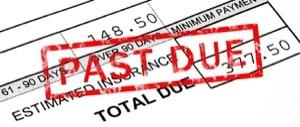Debt Collection
San Jose Attorneys Protecting the Interests of Creditors

The seasoned litigators at SAC Attorneys may be able to represent you in debt collection matters in Silicon Valley and beyond. Our San Jose debt collection lawyers have represented domestic and international clients, including many leading businesses. We draw on more than 50 years of combined experience and provide cost-effective, comprehensive solutions. We provide versatile representation and believe that the soundest way to deal with legal problems is to address them proactively.
Rules for Debt Collection
Several laws provide rules for fair debt collection practices. The Fair Debt Collection Practices Act is a federal law that prohibits debt collectors, which are agencies collecting debts from someone else, from being involved in deceptive or abusive bill collection practices. It prohibits debt collection during certain hours, requires creditors to honor a request not to be contacted, and more. The Rosenthal Debt Collection Practices Act also provides certain protections for debtors and must be followed.
We represent individuals and businesses in a broad range of debt collection matters. We provide legal representation for collections of accounts receivable, collections of judgments and settlements, and real estate collections and liens. We help businesses create and execute sound strategies to collect accounts receivable debts.
The debt collection attorneys at our San Jose firm also represent clients that are trying to collect money from real estate rentals or leases. In other situations, we help them collect with regard to liens or other real estate issues. We use a range of aggressive collections practices as appropriate, including demand letters, wage garnishments, liens, and more.
Collecting a Judgment or Settlement
Many people and business owners mistakenly believe that a lawsuit is over once there is a verdict or settlement. However, you still will need to collect the judgment, award, or settlement monies. Sometimes these are paid in a straightforward manner, but in other cases, it becomes necessary to chase down the other party and force them to pay through legal mechanisms.
We may need to file a lawsuit to obtain a judgment that can be enforced. A creditor that is granted a judgment is a judgment creditor and can use certain tools under the Code of Civil Procedure. The judgment authorizes a creditor to demand wage garnishment, a lien on real property, an account levy, or the seizure of personal property.
Most commonly, wage garnishment is used by judgment creditors to enforce a judgment. Our San Jose debt collection attorneys can help you set up wage garnishment. In this process, the judgment creditor contacts the employer and requires it to deduct a certain portion of wages for each pay period and send the money to the creditor. Wage garnishment is allowed under CCP section 706.010-706.011. In California, 25% of a worker’s wages can be garnished. Certain code sections define earnings and what is considered exempt from garnishment. Usually, retirement funds are exempt from garnishment.
When an account is levied under section 699.510-699.560, the creditor becomes entitled to take money in the account and apply the money to the balance of the judgment. A writ directs the levying officer to seize and sell a debtor’s property to the extent needed to satisfy the claim at issue.
It is also possible to place a lien on property. When a creditor has a judgment, it can place a lien on the debtor’s home, which requires the debtor to pay the judgment from the proceeds of a refinance or sale of the home. A lien on personal property can allow the holder of the lien to demand that the sheriff seize the property and auction it for sale.
In California, the statute of limitations varies depending on the debt at issue. For open accounts and contracts, the statute of limitations is four years. However, for real property, it is five years, and for domestic judgments, it is 10 years with a possibility of renewal.
Retain a Debt Collection Lawyer in San Jose
If you need to collect a debt that you are owed, you may want to consult an attorney who is experienced in following the necessary procedures. SAC Attorneys can devise an appropriate strategy to enforce your rights. Call us at (408) 436-0789 or contact us via our online form.











